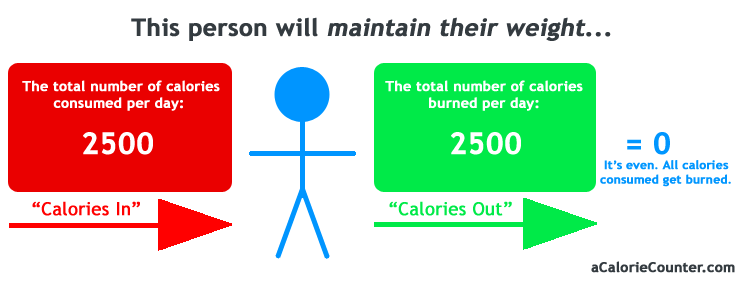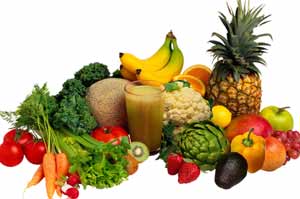The subject of food can be
a very confusing one. There’s a lot of
information coming at us from all angles, and sometimes it’s a challenge to
sort out fact from fad. As athletes, it
is especially important for us to pay attention to what we put in our
mouths. We tend to put our bodies
through enormous effort, and we expect it to keep putting out, regardless of
what we put in. Remember that old 80’s
expression regarding the new personal computer – “garbage in, garbage
out”? That’s exactly how our bodies
respond.
Imagine an athlete as a
sports car. If you spent a lot of money
on a new sports car, lovingly polished it every week, drove it to it’s limits
on windy country roads, and made sure it was parked inside your garage, under a
tarp, do you think you’d put low
grade, cheap ethanol-infused gas in your pride-and-joy? I don’t.
You should think of your body in the same way, and this shouldn’t just
apply to athletes. The human body is one
of the most incredible organic machines, and can do literally miraculous things
if you give it what it needs most – good nutrition.
Let’s start with the simple
stuff. What is a calorie? It’s a measure of energy. It takes a certain number of calories (energy
molecules) just to sustain you, and this
is your basal metabolism. Any activity
you do on top of just living and breathing requires more energy, or more
calories. Athletes require more calories
every day than an average sedentary person.
So now we’ve established that we need to take in calories, or energy,
where do we get it from? The simple
answer is food.
Your body uses food in
three basic formats: as fat, as
carbohydrates (or sugars) and as proteins.
Since our food choices are so incredibly varied these days, it has
become crucial to read labels and containers to determine the format in which
we are taking in these basic components of food. Some are better than others, and some we
really don’t want to touch with a barge-pole.
The discussion of vitamins and minerals is for another day!
I’ll break it down a bit
further.
Proteins : When looking for
proteins, think lean, anti-biotic free and small portions. As a nation we eat too much animal
protein. Our bodies are not equipped to
deal with enormous portions, and we don’t need it. If you don’t eat animal products, nuts are a
wonderful source of protein, and every vegetable and fruit you eat has about 9%
protein content, so you’re likely getting a good bit.
Fats : There has been much
confusion regarding fats, and a lot of very bad information has been doled out
to us regarding fats and how dangerous they can be. The bottom line is that your brain can’t
function without good fats, and your organs rely on fat to cushion them and
keep them healthy. There are also
vitamins which can only be absorbed in the presence of fat, and they are vital
for our health.
Concentrate on healthy
plant fats like avocados, olives and cold pressed, unprocessed plant oils such
as olive oil. Avoid processed fats,
heated fats or fat from animal products (though who can resist bacon,
right?!). By the way, heating any
cold-pressed oils negates any nutritional value. The heat kills the good stuff.
Carbohydrates : Absolutely
essential for brain function (simple sugars are the only nutrient that
effectively runs your brain), and for energy.
Carbs have got a bad rap for making you fat, and while that is true of
eating too many carbohydrates, an athlete just cannot function without
them. Very simply, carbs are classified
by their Glycemic Index, which means how small their molecules are and how
quickly they are absorbed into the blood-stream. Our goal in life should be to keep our
blood-sugar levels as even as we can.
The pancreas doesn’t like releasing insulin into the blood-stream
constantly to drop our bl00d-sugar levels.
So, we would be better off choosing carbohydrates with low glycemic
index levels, and avoiding those with high glycemic index levels.
For example, sweet potatoes
have a lower glycemic index than white potatoes, brown rice is lower than
white, whole wheat flour is lower than white flour. You get the picture.
Fruit works a little
differently because the sugars in some are “simpler” than in others, but for
the most part fruit has a lower glycemic index than table sugar, and the
vitamins and minerals you get in fruit are vital for health.
Your body works a little
bit like a car. You drive a little way,
and you need to put in some fuel. And
then you can drive a bit more. The 45
minute period post training or competing is crucial, and it’s important to make
wise choices then. Your body is craving
a tank full of gas, it’s wide open to receive nutrients to restore, rebuild and
regenerate. So give it the good
stuff. Choose that turkey sandwich over the chocolate
cake, and that chocolate milk over the coke.
Things to consider:
1) Simple sugars are only
your friend on the bike. Eat complex
carbs (and all the other stuff) post training, and leave desert for
desert. Make sure you’re putting in the
good stuff first.
2) Avoid things in boxes,
bags, cans or bottles. If it didn’t come
out of the ground, off a tree, or have parents, don’t eat it. Or at least, eat it in VERY small quantities.
3) Learn to become a good
reader of labels. Take your time and
really learn about what you’re putting in your mouth. Ask questions.
4) Good health begins with
good nutrition. Go and research what
food molecules do at a cellular level in your body. You will be amazed at how spectacularly
efficient the human machine is at healing itself when you give it the good gas.
I encourage everyone to put
as much effort into understanding the role of nutrition on your body as you do
into your cycling training. Don’t tip the garbage can into your Lamborghini!




4 comments:
This is solid foundational information. I think that as we age as athletes, recovery is definitely a limiting issue. Great nutrition is vital for us masters athletes as it can reduce the recovery needed.
Race weight is vital if one wants to be competitive. Most people could lose 5 lbs(or more) and that loss would improve performance more than a couple of years of hard training........in business, we called it 'bang for the bucks'.
Thanks Sam! All very well put!! I've become addicted to coconut oil here lately as a fat source. I use it to saute veggies and actually just eat in straight from the jar on chips/crackers. I think sometimes we shy away from fat, but we need those good fats you mentioned... I go ahead and eat the egg yolk too. The cell, the basic structure of life forms, is surrounded by a layer that includes cholesterol. So, go ahead and eat some yolks in moderation.... :) Keep the nutrition wisdom coming! THANKS
This is great input. From the sounds of this I should be eating more bacon and eggs...ha ha. Thanks for teaching us and thanks for making sure I'm putting high performance fuel in my "machine"!
Extremely informative! I love info like this. I am a Juice Plus advocate and totally see validity in all you state.
Thanks for the post!
Post a Comment